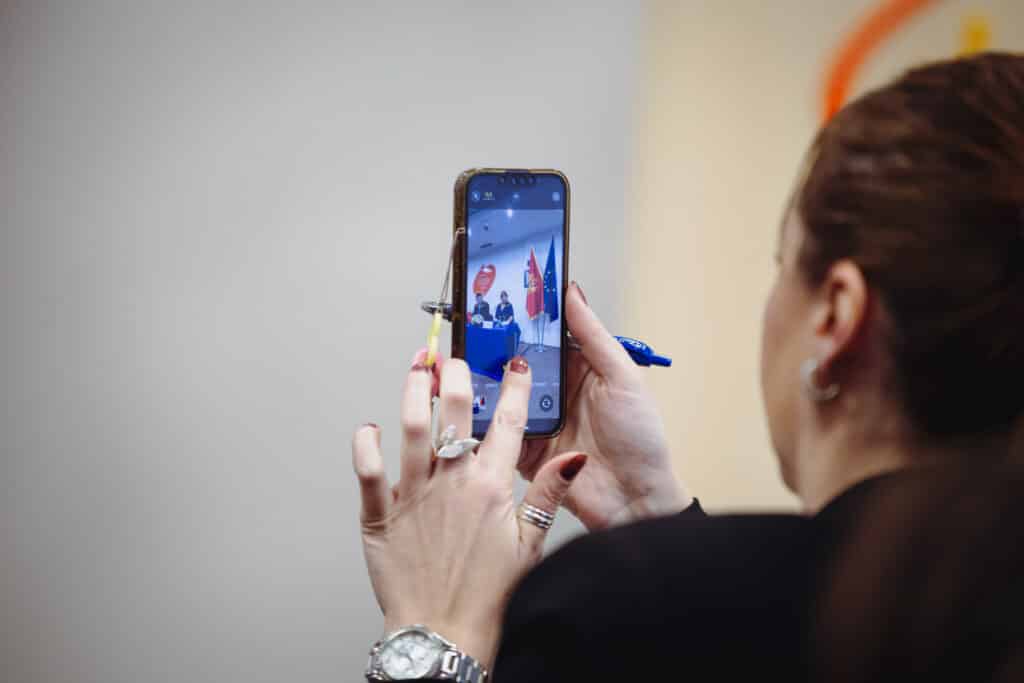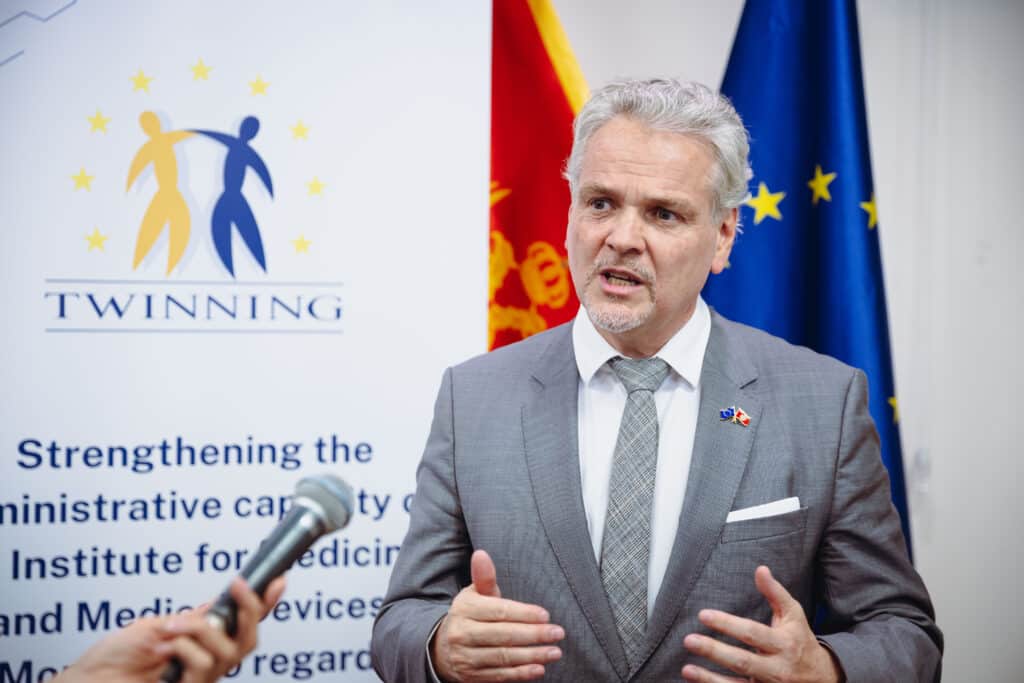The Twinning Light project, titled “Strengthening the Administrative Capacities of the Institute for Medicines and Medical Devices of Montenegro Regarding the Requirements of the EU Accession Process”, has been officially launched.
This project marks a significant step on Montenegro’s path towards the EU. It aims to enhance the institutional capacities of the Institute for Medicines and Medical Devices (CInMED) and prepare it for active participation in the EU working parties and expert groups, as well as for the implementation of the European procedures for medicine approval and supervision in production and distribution.


initiated through the cooperation between the Institute for Medicines and Medical Devices of Montenegro and the Malta Medicines Authority. The components of the project are focused on further strengthening the Institute’s professional capacities through the implementation of modern EU practices and standards, which will make a positive impact on the development of the market for medicines and medical devices, ultimately improving healthcare services for Montenegro’s citizens.
“We are taking an important step on Montenegro’s path towards EU membership by launching this Twinning project, which will contribute to closing Chapter 1 – Free Movement of Goods. This project will not only strengthen the regulatory framework for the pharmaceutical industry but also bring tangible benefits to citizens through a better healthcare system. I am grateful to the representatives of the institutions from Malta for supporting the Montenegrin Ministry and the Institute for Medicines and Medical Devices. I believe this is the true spirit of Team Europe. Together, we can support Montenegro in its ambitious plan to meet European standards and join the European Union,“ said Ambassador of the European Union to Montenegro, Johann Sattler.

The Director of the Institute for Medicines and Medical Devices, Snežana Mugoša highlighted the importance of this project for Montenegro’s further progress on the EU accession path. She emphasised that this project is not just an opportunity for exchanging experiences and modern professional standards but also for strengthening mutual trust and cooperation among institutions involved in the regulation of medicines and medical devices.
“Our team is ready and motivated to take on the responsibilities of EU membership. With valuable cooperation from our Maltese colleagues, we will improve the regulatory framework and implement the practices of European regulators by adopting the most advanced operational models, ensuring that the Institute becomes part of the European family even before Montenegro’s official EU accession,” said Dr Mugoša.

The Minister of Health of Montenegro, Vojislav Šimun, underlined the significance of this project for Montenegro’s healthcare system and its modernisation in line with European standards.
“The Institute for Medicines and Medical Devices is a pillar of our healthcare system, setting an example of excellence, dedication, and progress. The Ministry of Health strongly encourages all institutions within our healthcare system to continuously grow, develop, and align with the highest international standards. Through available IPA funds, we are modernising healthcare infrastructure and strengthening key segments of our system to ensure the best possible services for our citizens. This project is a significant step in advancing the Institute and preparing it in a timely manner for EU membership,” Minister Šimun stated.

The Twinning Light project represents yet another crucial advancement for the Montenegrin Institute for Medicines and Medical Devices in implementing the highest operational standards, modelled on European regulators. These standards will be essential in ensuring high-quality, safe, and effective medicines for Montenegro’s citizens.
The cooperation between Montenegro and Malta will continue in the coming years through various joint initiatives and projects aimed at strengthening both regulators’ healthcare systems and administrative capacities. This partnership contributes to professional, scientific, and academic development, research, and knowledge exchange and builds friendships based on European values.
